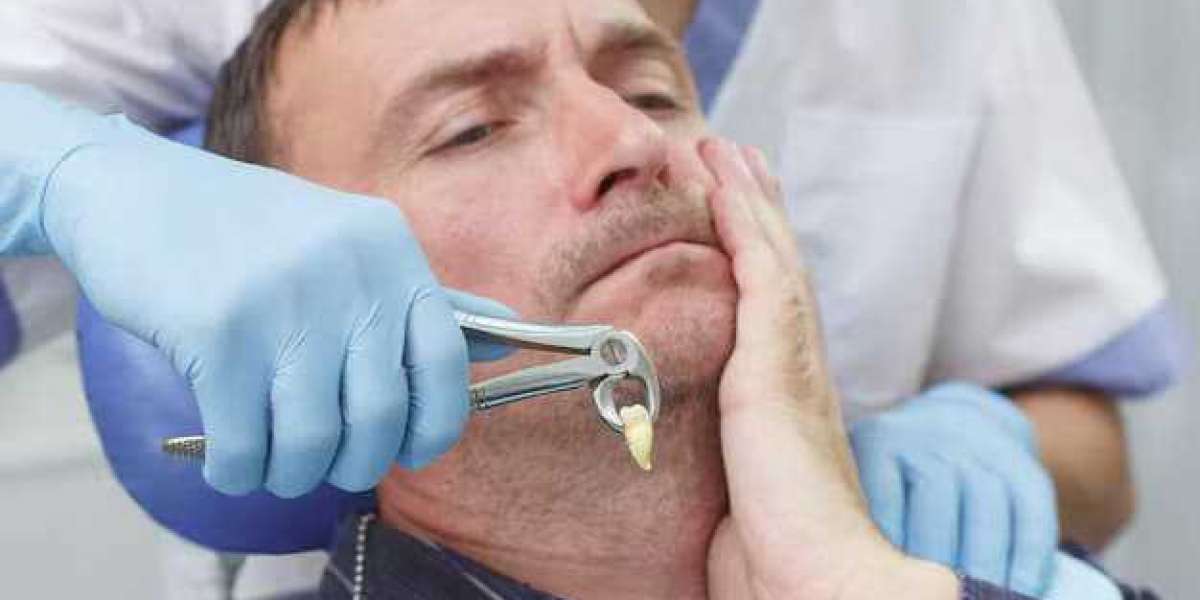Oral health plays a crucial role in overall well-being, and keeping natural teeth intact is always the preferred goal. However, there are times when saving a tooth may not be possible. In such cases, tooth extraction becomes a necessary step to protect oral health and prevent further complications. While the idea of losing a tooth may sound intimidating, understanding why dentists recommend extraction can help ease concerns and highlight the importance of timely treatment.
What Is Tooth Extraction
Tooth extraction is the process of removing a tooth from its socket in the jawbone. This dental procedure can be simple or surgical, depending on the condition of the tooth and surrounding tissues. A simple extraction is performed on a tooth visible in the mouth, usually with the help of specialized instruments. Surgical extraction, on the other hand, is required for teeth that are broken, impacted, or have not fully erupted.
When Is Tooth Extraction Necessary
Severe Tooth Decay
When tooth decay penetrates deep into the pulp, causing infection, a root canal treatment is often the first choice. However, if the infection is too extensive and the tooth cannot be saved, extraction becomes necessary. Removing the decayed tooth helps prevent the infection from spreading to other areas of the mouth or bloodstream.
Advanced Gum Disease
Periodontal disease can weaken the supporting structures of teeth, including the gums and bone. In severe cases, teeth may become loose and painful. Extracting affected teeth can prevent further damage to surrounding areas and create space for treatment options such as dental implants or dentures.
Impacted Wisdom Teeth
Wisdom teeth often do not have enough space to erupt properly, leading to impaction. Impacted teeth can cause pain, swelling, and infections, and may even damage nearby teeth. In such cases, extraction of the wisdom teeth is strongly recommended to relieve discomfort and maintain oral health.
Overcrowding of Teeth
Orthodontic treatments like braces sometimes require creating additional space in the mouth. Extraction of certain teeth may be necessary to align the bite properly and achieve the desired results. This step ensures that the remaining teeth can shift into their correct positions without causing long-term complications.
Dental Trauma
Accidents or injuries can cause teeth to become broken or fractured. While restorative options may work in some cases, teeth that are damaged beyond repair may need to be extracted. This step helps eliminate pain and allows for future restoration with dental implants or bridges.
Failed Dental Restorations
At times, previous dental work such as crowns or fillings may fail, especially if the tooth structure underneath has weakened. When a tooth can no longer support further restoration, extraction is often the most effective solution.
Risk of Infection
Patients with compromised immune systems may require extraction of problematic teeth to prevent infections that could worsen their overall health. In such cases, dentists recommend removal to protect not only oral health but also systemic health.
The Tooth Extraction Procedure
Initial Examination
Before extraction, the dentist conducts a thorough examination, including X-rays, to evaluate the position and condition of the tooth. This helps determine whether a simple or surgical extraction is required.
Anesthesia and Comfort
To ensure comfort, local anesthesia is administered to numb the area. In more complex cases, sedation or general anesthesia may be used to minimize anxiety and discomfort.
The Extraction Process
For simple extractions, specialized tools are used to loosen and remove the tooth. In surgical extractions, an incision may be made in the gum to access the tooth, and in some cases, the tooth may be sectioned into smaller pieces for easier removal.
Post-Extraction Care
Once the tooth is removed, the dentist provides aftercare instructions to ensure proper healing. This typically includes advice on managing swelling, avoiding certain foods, and maintaining oral hygiene.
Benefits of Tooth Extraction
Prevents Spread of Infection
Removing an infected or decayed tooth eliminates the source of infection, protecting other teeth and gums.
Relieves Pain and Discomfort
Tooth extraction provides relief from persistent pain caused by decay, trauma, or impaction.
Creates Room for Better Alignment
In orthodontic cases, extraction makes space for proper alignment of teeth, leading to improved function and aesthetics.
Protects Long-Term Oral Health
By addressing issues promptly, extraction helps prevent future complications and promotes a healthier mouth.
Recovery After Tooth Extraction
Initial Healing Period
Patients may experience mild discomfort or swelling for the first few days, which can be managed with prescribed medication and cold compresses.
Importance of Rest
Resting after the procedure allows the body to heal more efficiently and reduces the risk of complications.
Diet Recommendations
Soft foods like soups, yogurt, and mashed vegetables are recommended in the initial recovery phase. Avoiding hard or crunchy foods helps protect the healing site.
Oral Hygiene Practices
Gentle brushing and rinsing with a saltwater solution are essential for keeping the area clean while avoiding irritation.
Follow-Up Care
Dentists may schedule follow-up visits to monitor healing and discuss replacement options for the extracted tooth, such as implants, bridges, or dentures.
Alternatives to Tooth Extraction
While extraction is sometimes unavoidable, dentists explore alternative treatments whenever possible. Root canal therapy, crowns, and periodontal treatments may help preserve natural teeth. However, when these options are not viable, extraction becomes the most reliable solution to protect oral and overall health.
Myths About Tooth Extraction
Myth 1: It Is Extremely Painful
Modern anesthesia and advanced techniques ensure that tooth extraction is generally a comfortable and stress-free experience.
Myth 2: Recovery Takes Weeks
Most patients recover within a few days, especially when they follow aftercare instructions closely.
Myth 3: All Wisdom Teeth Must Be Removed
Not all wisdom teeth require extraction. Only impacted, infected, or problematic ones need to be removed.
Myth 4: Extraction Leads to Gaps Forever
Dentistry offers several options such as implants and bridges to replace missing teeth, ensuring that gaps do not compromise appearance or function.
Conclusion
Tooth extraction may not be something anyone looks forward to, but it is often a vital step in maintaining oral health and preventing serious complications. Whether due to decay, gum disease, overcrowding, or trauma, extraction can provide relief, protect surrounding teeth, and pave the way for healthier dental outcomes in the future.
For individuals seeking professional and compassionate dental care, Clove Dental Ventura offers expert guidance and treatment options tailored to individual needs. Choosing their team ensures that every patient receives the highest quality care for a healthier and more confident smile. Scheduling an appointment today is the first step toward better oral health and peace of mind.







